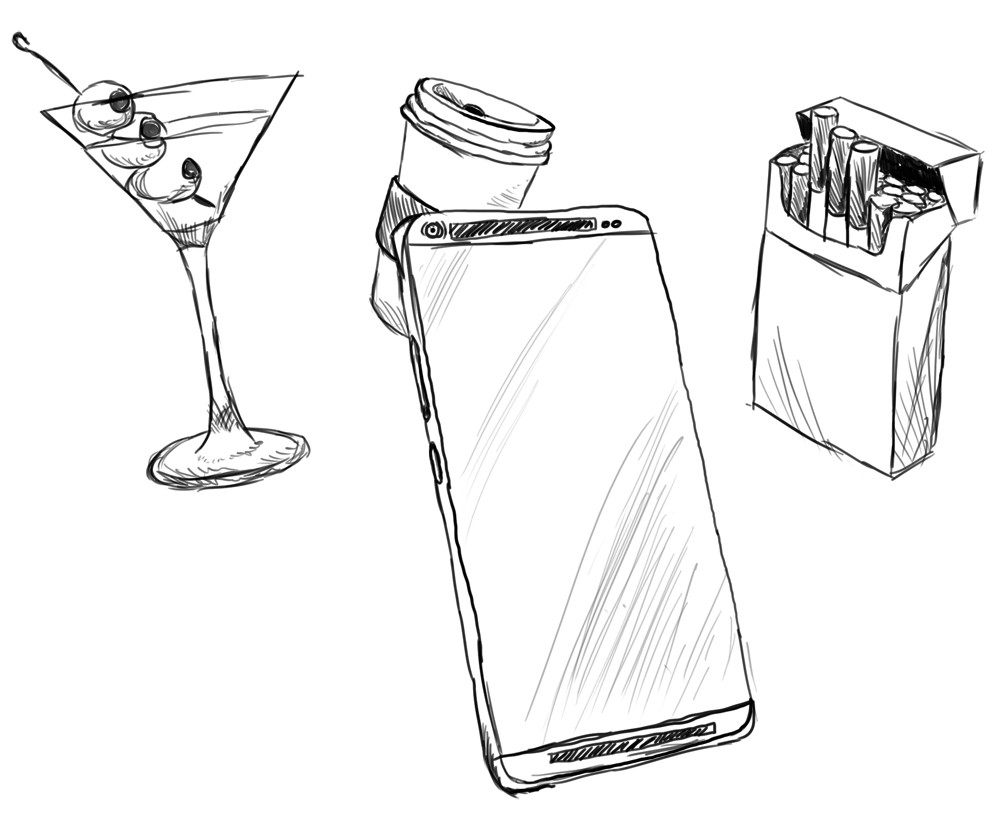
I once had a professor tell me that every single one of her students is a drug addict. She wasn’t talking about alcohol, marijuana or anything like that. She was referring to dopamine.
Every time you check your Twitter, Snapchat or start browsing on Tinder, you’re raising those dopamine levels to almost euphoric points. That’s not healthy.
It’s so addictive that your mind is constantly searching for it, and once you get your fix, it isn’t enough. So you continue searching for it, making that craving more and more difficult to satisfy. This leads to what is known as the “dopamine loop.”
That might be why people ages 18 to 24 are 49 percent more likely to develop an addiction to their smartphones. With this technology being so ubiquitous in our lives, it’s hard to stay away.
Average cellphone users look at their phones 150 times a day, or every six minutes. I’m willing to bet my tuition and paycheck that you are not receiving 150 texts or updates a day. You’re not Ashton Kutcher.
This constant distraction is unarguably detrimental for any person that needs to stay productive like you, me and the other 16.6 million working college students in the nation.
I work a nine-to-five job, and I’m in a constant internal battle between my work-self and my always-needs-to-be-on-the-phone self. Throw in coursework and other commitments, and I truly can’t afford to be constantly fiending for dopamine.
So, my message is simple — put your phone away and be a more awesome you.
I’ve committed to turning my phone off every day at work. I even stick a Post-it note to the screen that says “get back to work.” It’s made me a much more productive employee and has turned into a habit that translates outside of the office as well.
When productivity is your goal, technology addiction can be your worst enemy. Leslie Perlow, professor of business at Harvard University, offers a compromise in her book “Sleeping With Your Smartphone” called “predictable time off.”
The concept is fairly straightforward. It suggests that you designate a certain block of the day to being smartphone-free. This method not only allows you to be productive during these few hours but also helps cut down on your dependency throughout the day as well.
Technology addiction is probably also affecting your social life.
Behavioral scientist Andrew Przybylski found in a study that even the presence of a cellphone during a date put people on edge. So even if you aren’t using the phone, it’s making your date uncomfortable.
“It sends a message,” Przybylski notes, “that I could stop talking to you at any moment and start another conversation.”
So put it away, carry on a conversation and get your dopamine fix by enjoying time with another person.
You’re already awesome. But constantly checking your smartphone to curb your dopamine addiction is keeping you from being awesome-er. Go be awesome-er. Put the phone away.
Dylan de Wit can be reached at [email protected] or @DylanTdeWit on Twitter.








